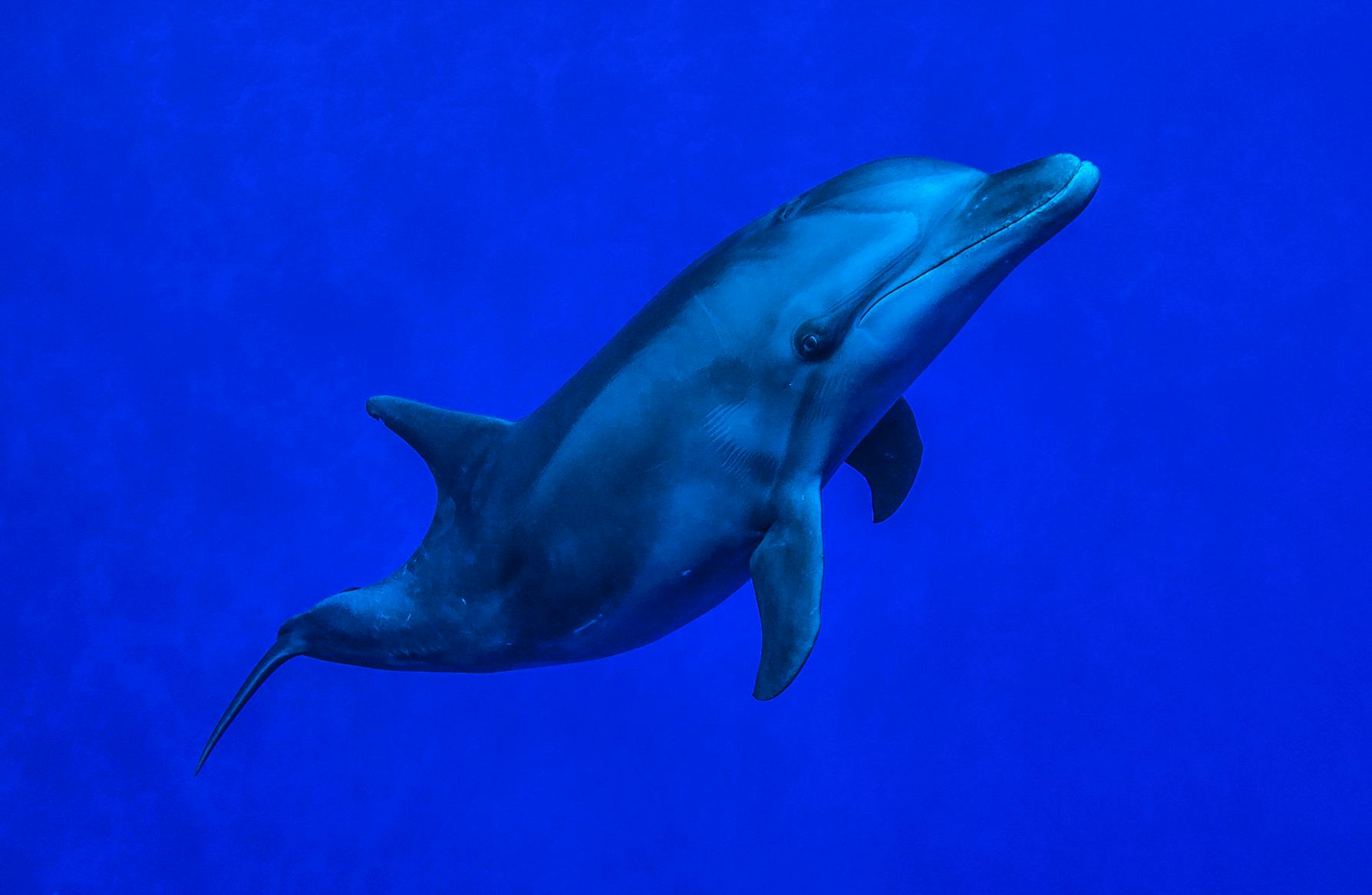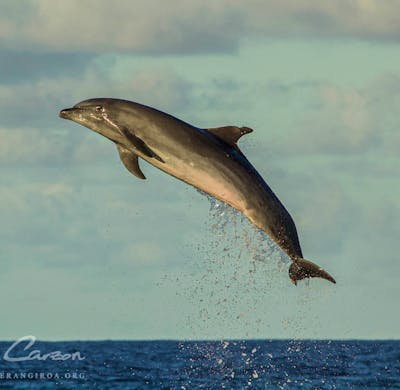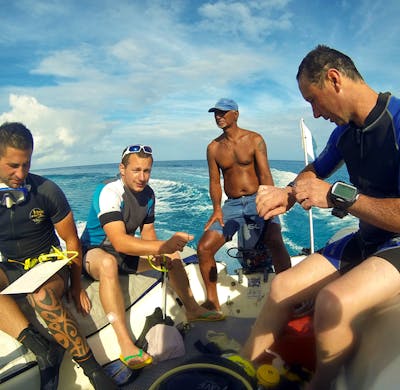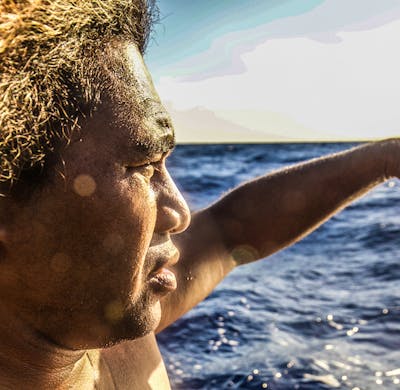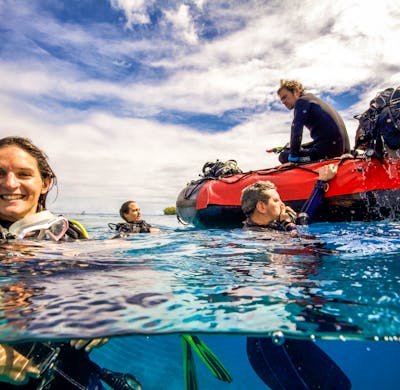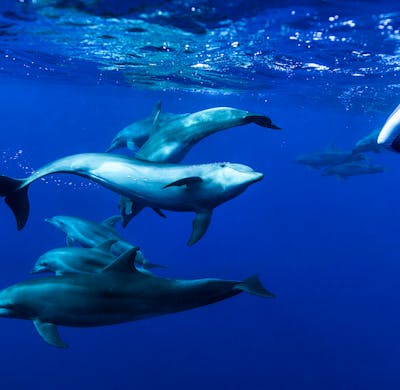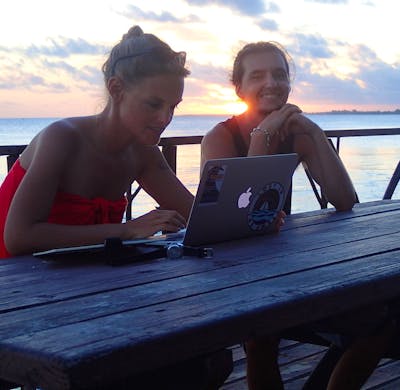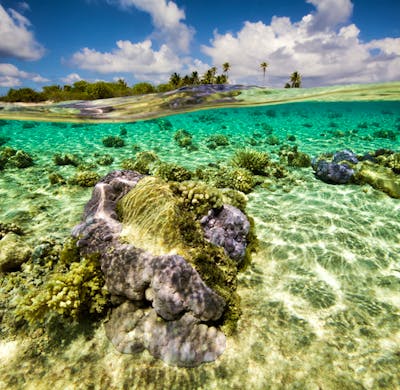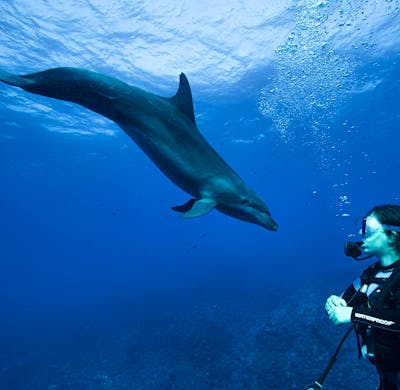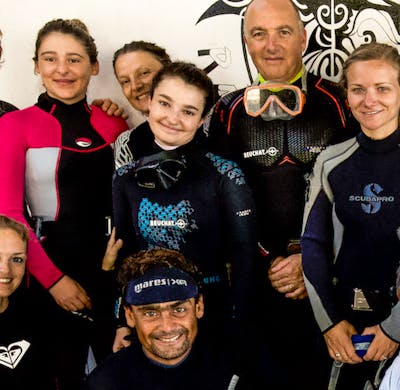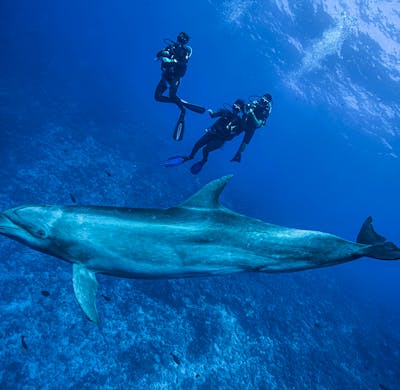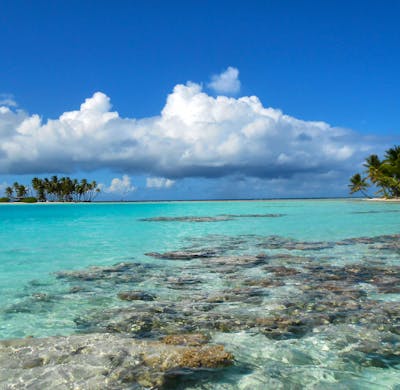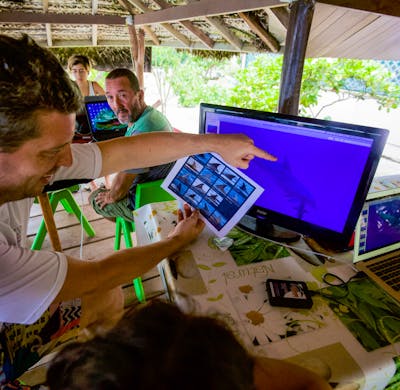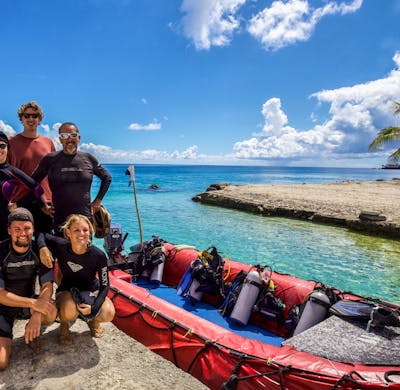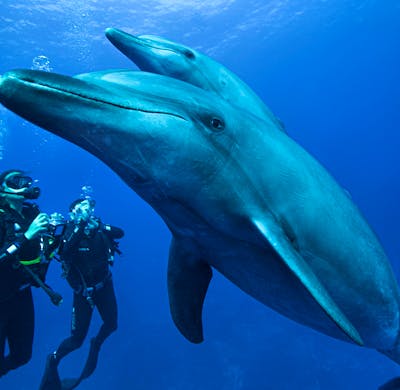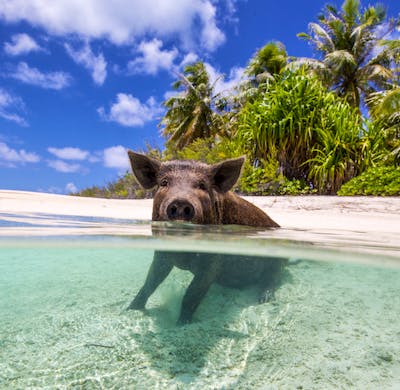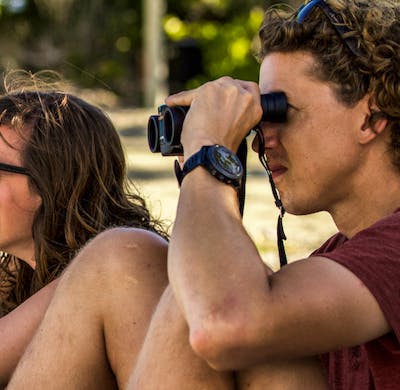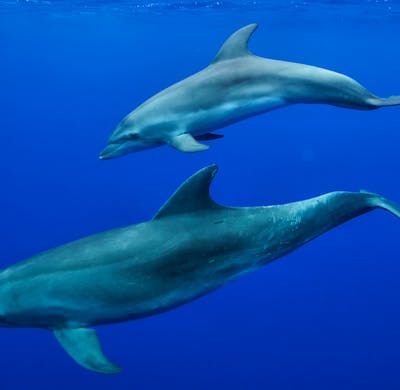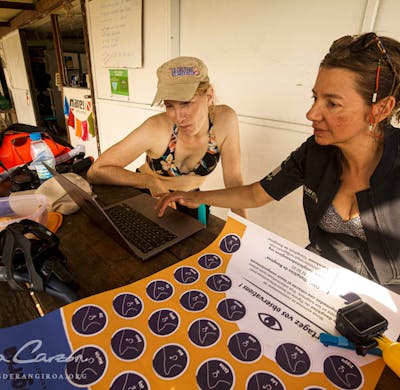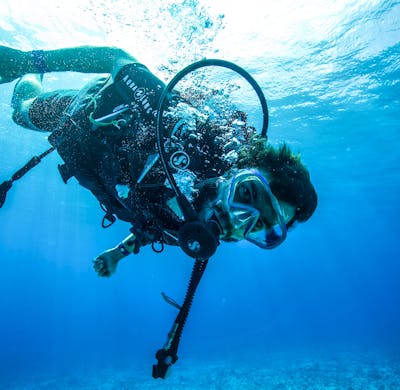THE TUAMOTU ARCHIPELAGO
The Tuamotu Archipelago - population of 15,000 people -, an area highly threatened by climate change, contains 78 atolls spread across an 800,000-square-kilometer ocean surface. It has 800 square kilometers of land for 20,000 square kilometers of lagoon - 0.1% and 2% of its maritime area respectively -, demonstrating how fragile this oasis of aquatic biodiversity is. The Tuamotu atolls are characterized by their height, shape, exposure to the ocean, population, and the activities performed there. There are small, closed lagoons, both hypersaline and brackish, and large lagoons open to the ocean like Fakarava, which features the largest pass in French Polynesia at 1,600 meters, and even a raised coral atoll, Makatea. Coral growth, which allows these small island reefs of only a few meters in altitude to exist, is directly affected by the slow and irreversible acidification of the oceans - a 30% increase over two and a half centuries. Here, as anywhere else, ecosystems are defenseless against commercial, demographic, and climate pressures.
RANGIROA ATOLL
Yet 350 kilometers from Tahiti in the northwest Tuamotu Islands, the giant atoll of Rangiroa - 'Great Sky' in Paumotu -, a true oasis of life in the heart of the tropical Pacific, stretches its 170 kilometers of coral reefs, sands, and coconut trees around a 1,600-square-kilometer area with waters so fish-laden that it has become one of the world's top diving destinations. The atoll's impressive size - 80 kilometers long by 20 kilometers wide on average - and its two large passes, Avatoru and Tiputa, make it home to marine wildlife as exceptional as it is impressive.
THE COMMON BOTTLENOSE DOLPHIN
The common bottlenose dolphin, Tursiops truncatus, is distributed throughout French Polynesia. However, the species is more easily and regularly observed in Rangiroa Atoll than in other Polynesian islands. Here, adults can reach up to 3.3 meters and weigh up to 450 kilos. They are commonly identified by their stocky and grayish body prolongated by a thick rostrum. The line of their mouth, curved upwards, gives them a smiling appearance. Nevertheless, this morphological feature does not reflect the overall species’ behaviors as these dolphins have an extremely complex social life and may display affiliative behaviors such as play and petting behaviors as well as agonistic behaviors - e.g. intimidation, aggression. The numerous scars and notches visible on the adult males’ bodies perfectly illustrate these animals’ strength.
OUR GOALS
For many years, scuba divers have been illegally encouraging physical interactions with Tiputa bottlenose dolphins, especially with young individuals. Some of these dolphins are now extremely familiar with humans, making them particularly vulnerable to anthropogenic activities. Indeed, overconfident animals may easily be injured or even destroyed if they display intrusive or aggressive behavior toward humans.
1. Through our long-term demographic and social monitoring of the Tiputa dolphin community, we aim at spotting any deleterious impact of human activities on the dolphins.
2. Through our long-term ethological monitoring, we want to describe and better understand the impacts of tourism on the dolphins’ behaviors and identify the risks associated with close interactions between dolphins and divers.
3. Through our education program, we want to share our results and recommendations with the general public to help developing sustainable and ethical tourist activities, and to improve our relationship with wildlife.
WHAT IS THE ROLE OF THE VOLUNTEER?
First, the volunteers will discover the dolphins' habitat and our dolphin monitoring program. Then, they will be trained to identify the dolphins individually, to spot basic affiliative and agonistic behaviors, and to help collecting underwater and land-based photo and video data. They will be asked not to attract or otherwise disturb the animals and other marine wildlife but to adopt a passive attitude underwater. After the dives and land-based sightings, the volunteers will enter the data collected into our databases.
Our 14-day missions need certified scuba divers with a minimum level 1 or Open Water training course and an experience of at least 15-20 dives at sea. They will show their credential and logbook before starting the dives. Divers must be in good physical condition and demonstrate good team spirit. They should not be too sensitive to seasickness.
In order to enjoy the lagoon during free time, we advise every participant to bring his / her own fins, mask and snorkel.
WHAT ARE THE VOLUNTEER ACTIVITIES AND RESPONSIBILITIES?
1. Underwater sightings
All the dives will be supervised by professional diving instructors. Before each dive, a briefing will focus on the dive spot, safety procedures, and marine life. The dive spot is located at about 5 minutes by boat from the dive center. The volunteers must remain with their instructor throughout the dive which will generally last between 45 and 70 minutes. The divers will be asked to take video footage of the dolphins in a passive way. The divers without camera will have to record environmental parameters. After the dives, a debriefing will focus on the environmental conditions and underwater sightings.
We strongly recommend you to bring your own underwater camera.
2. Land-based sightings
All the land-based sightings will be supervised by DDR's research director. Long breaking waves - locally called 'mascaret' - resulting from the meeting of a tidal current coming out of the lagoon with ocean water run through Tiputa pass two times a day. This exceptional setting constitutes a privileged socialization ground for the bottlenose dolphins which regularly come to surf and leap into the waves. This is a perfect location to spot and take pictures of the dolphins without influencing their behaviors. This is also a perfect location to record information on the boats and divers that frequent the dolphins' core habitat. This activity will be strongly dependent on the currents.
3. Part of the day will be dedicated to data processing, training courses, comments, and debates. Depending on the time of the year, the volunteers may also participate in school presentations.
WITH WHOM WILL THE VOLUNTEERS BE WORKING WITH?
The volunteers will be supervised by DDR's research director, diving instructors and captains.
WHAT DO WE EXPECT FROM THE VOLUNTEERS?
Our mission is a participative tool for the demographic and ethological monitoring of a small bottlenose dolphin community impacted by wildlife tourism. It will allow you to observe and better understand these animals' routine, all the issues related to their conservation, and the complexity of relationships between humans and wildlife. We expect volunteers to get involved in our fieldwork to help the NGO sustaining its long-term dolphin monitoring program.
WHAT CAN THE VOLUNTEERS EXPECT FROM US?
DDR's research director has been working on this small dolphin community for about 15 years. She will share her experience and knowledge objectively and with passion. Volunteers usually leave the mission with a new perception of the dolphins and their environment. Our captains and diving instructors know the location very well and will also share their knowledge with pleasure and spontaneity.
DO THE VOLUNTEERS HAVE TO BRING SPECIAL EQUIPMENT?
We strongly recommend volunteers to bring their own fins, mask and snorkel, a lycra or wetsuit, and their own underwater camera. It may be useful to bring a laptop and a hard drive. We also advise everyone to bring a hat or cap, polarized sunglasses, a seasickness remedy, a raincoat, a mosquito repellent, and a tube of antibiotic ointment.
RECOMMENDATIONS
- Volunteers must be in good physical and mental condition, with no heart disease or treatment requiring immediate proximity to hospitals.
- We strongly advise people who did not dive for more than six months to do a security visit to an ENT and a refresh dive.
- Volunteers must be able to live in community and share with other people.
- Adaptability, patience, thoroughness and good humor are welcome.
GOOD TO KNOW
- A biometric passport and an ESTA form are required for stopovers in the USA.
- The voltage used in French Polynesia is 220V.
- All field activities are dependent on the weather and currents.
- It is prohibited to dive less than 12:00 before a domestic flight and 24:00 before an international flight.
- Water is always at perfect temperature - between 25 and 29°C. However, you should beware of currents, especially along channels.
- Avoid swimming at night or wearing shiny jewelry while swimming or diving near the reefs - moray eels, barracudas. We do not recommended swimming in areas where fish have recently been cleaned. Beware of stonefish and do not touch the coral or other animals. Never collect live coral or shells.
- We recommend wearing a Neoprene suit. You should generally avoid walking barefoot in the water.
- Be careful of the sun and dehydration. We strongly recommend you to bring sunscreen, antibiotic ointment, and antihistamine cream.
- Beware of mosquitoes.
- Fresh water is a rare and precious commodity in the Tuamotu Islands.
- Be careful not to feed stray dogs and cats to avoid familiarizing them near the bungalows or kitchen.
- The local currency is the French Pacific franc, which is indexed to the euro. €1=XPF 119.33. Cash is handy when you want to buy yourself a sandwich or a drink, or take a taxi. ATMs are found at Rangiroa airport and Tiputa village. A meal at a snack bar costs about XPF 1,700 - €14. Expect to pay XPF 3,000 / person in a small restaurant and XPF 6,000 in a large restaurant. 1.5-liter soft drink > about XPF 600. A box of inexpensive cakes > XPF 250. Taxi ride > XPF 1,000 / 12 kilometers in Tahiti; XPF 500–1,000 / person on the islands. Land-based Wi-Fi internet connection > XPF 500 / hour – XPF 12,000 / 50 hours. Phone card > XPF 1,000. If you want to use your cell phone in Polynesia, please contact your carrier before the trip.
- Rangiroa has a dispensary, doctors and a pharmacy.
- Baggage from overseas cannot exceed 30 kilograms.
- Drugs are strictly forbidden.
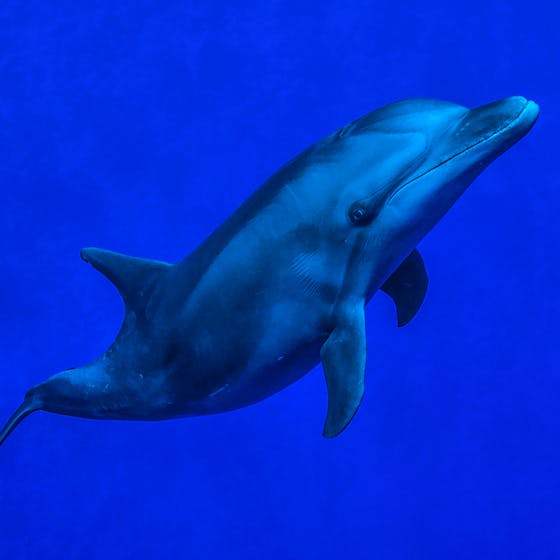
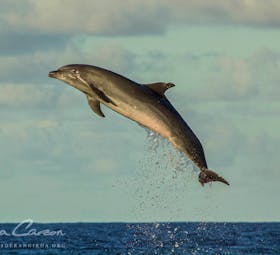
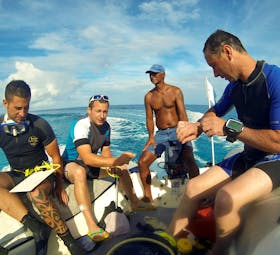
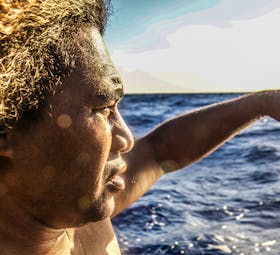
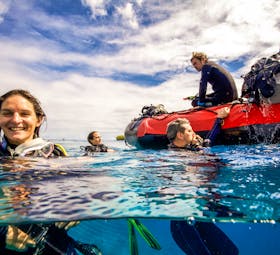
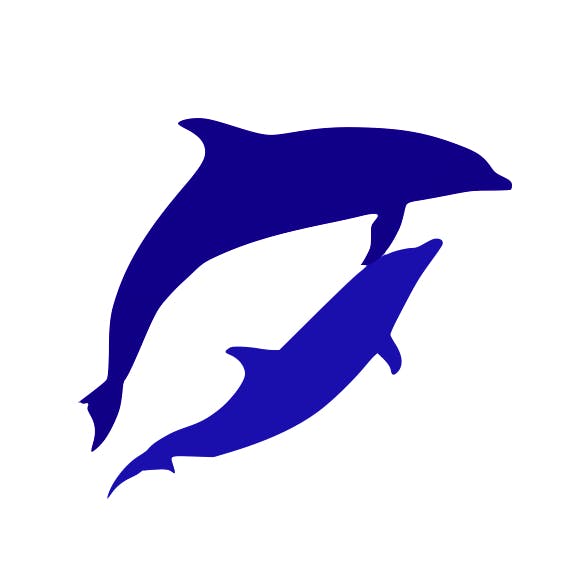
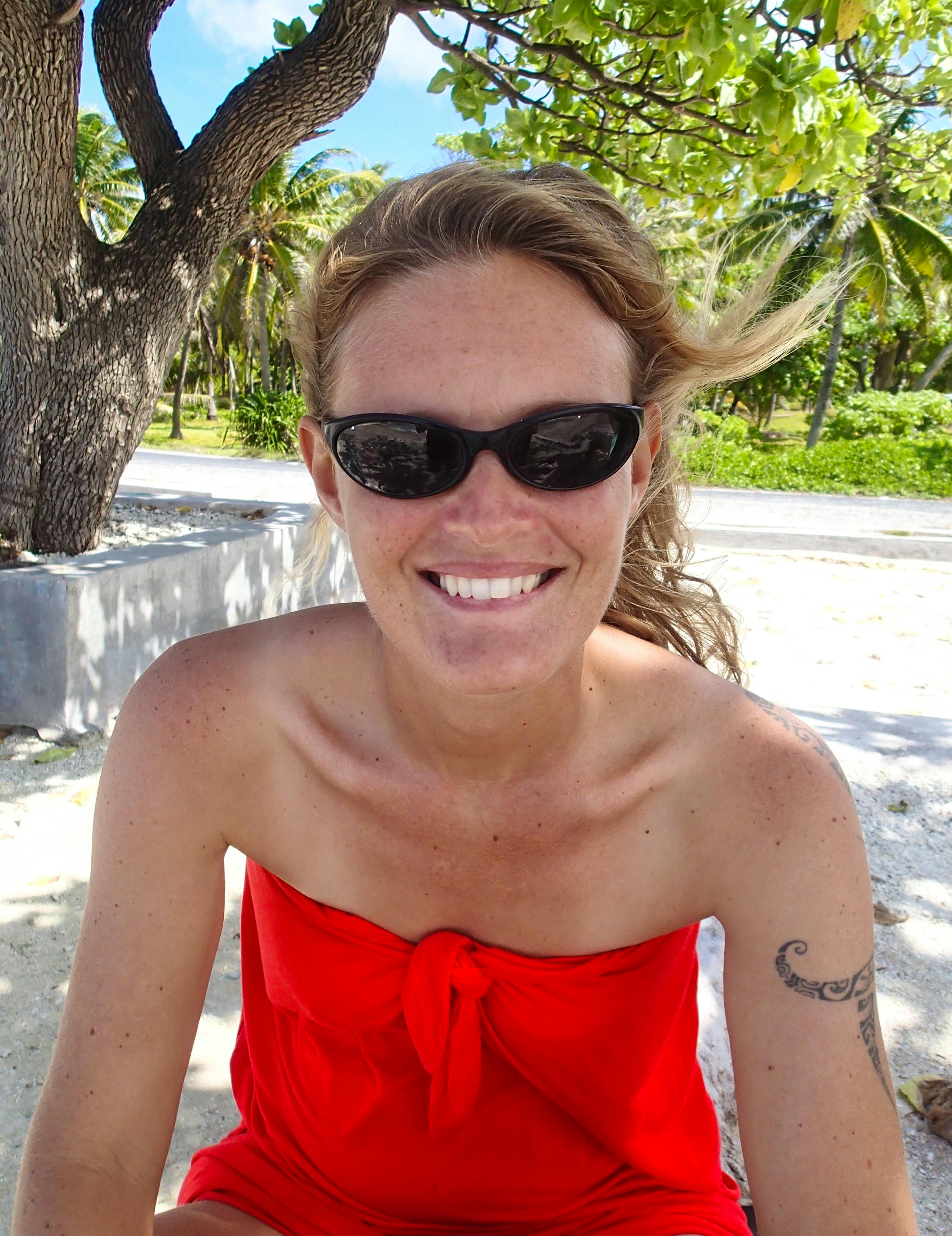
 4.8
4.8

